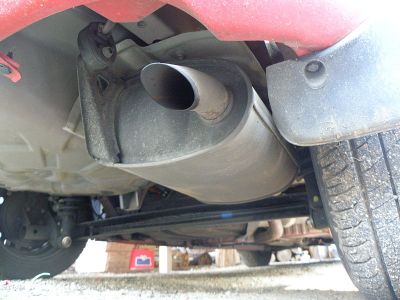Turning waste heat into energy

Car_Exhaust_Pipe, fot. public domain
Only a fraction of the energy released by burning fossil fuels is converted into mechanical or electricity energy with most of the energy released as heat and written off as a loss. Thermoelectric materials developed by an EU-funded project may provide the solution to this energy problem.
Between one half and two thirds of the fossil fuels burnt to generate energy are dissipated as heat into the atmosphere. While it has long been known that waste heat can be converted into energy the efficiency of early thermoelectric power generation systems was so low that it limited their applications.
Thermoelectric generators are essentially devices designed to convert heat directly into electricity using two materials and a temperature gradient. The greater the temperature difference between the 'hot' side and the 'cold' side the greater the power that can be produced.
Within the POWER DRIVER project the focus was to design thermoelectric generators that could be mass produced for use in automotive waste heat recovery.
Specifically, two small thermoelectric generators have been designed: one based on silicide materials and another on telluride materials. Silicide and lead telluride (Pb/Te) based materials were synthesised and then processed using spark plasma sintering to produce thermo-electric materials with performance comparable to that found in the literature.
The thermoelectric devices have been integrated with control and power electronics. The most suitable solution was selected for mounting onto a hot air testrig where the exhaust of a 2litre gasoline car was simulated to establish its performance. This, in addition to estimated manufacturing and selling costs, was used to evaluate the new technology's commercial attractiveness.
Once completed the POWER DRIVER system will extract waste heat from the exhaust that will deliver direct current electrical power to the vehicle electrical system and thus reduce the alternator demand giving improved fuel efficiency by as much as 5 %.
published: 2015-05-05